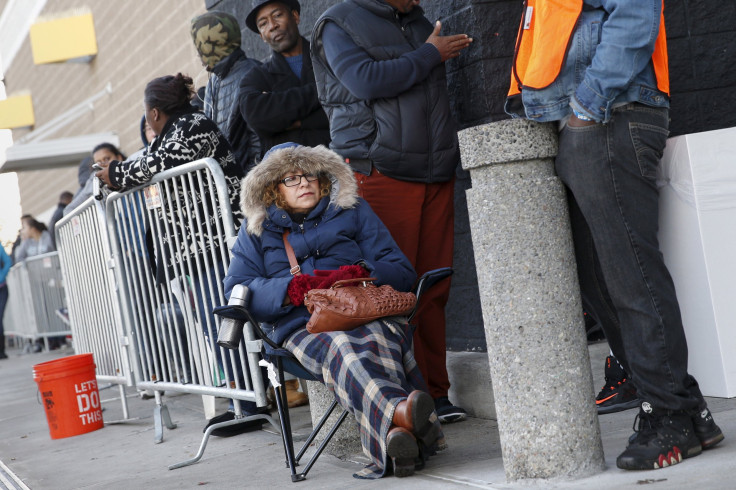Amid A Successful Holiday Season For Retailers, Shoppers Look For Last-Minute Deals On Super Saturday

Thanks to Americans’ penchant for procrastination, the last weekend before Christmas tends to be one of the busiest shopping periods of the year. And while it remains unclear exactly how stores fared Super Saturday, there’s no doubt it’s been a strong holiday season for retailers thus far.
Total sales spending increased by 2.4 percent during the period from Halloween to last Monday, according to First Data Corp., a payment-technology company. That’s up from a 1.8 percent hike over the comparable period last year. U.S. Commerce Department data have told a similar story. It shows November sales were up 1.4 percent from the same month last year.
One of the likely reasons for the uptick: Shoppers are seeing lower prices on popular holiday items -- and taking advantage. In October, retail prices were down nearly 3 percent from the same month last year.
The National Retail Federation, a lobbying group for the country’s largest retailers, pinned the price drop on a number of factors. Inventories were more elevated than usual, the NRF said, thanks to the surge of merchandise imports that followed the resolution of a long labor dispute that affected West Coast ports.
The NRF also said unusually warm weather weakened demand for seasonal items such as sweaters. Stagnant wages have played a role, too, it said. As prices surge for rent and health care -- but pay stays the same -- American workers are feeling the squeeze.
The paycheck problem doesn’t appear to be cooling off either. By some measures, average wages effectively have remained the same for decades. Workers today appear to show little optimism the trend will change. A recent report by the consumer-finance site Bankrate revealed few Americans are expecting holiday bonuses. On top of that, just 12 percent of those surveyed said they anticipate a raise this holiday season.
While overall sales remain comparatively steady, the way customers are buying “Star Wars” figurines, smartphones and other electronic gadgets is changing. Brick-and-mortar stores still attract the bulk of consumers. But First Data reported in-person sales have grown less than online sales this year, with the former up 2 percent and the latter up 4.6 percent.
Anecdotally, local news outlets reported large crowds over the Super Saturday weekend, from the California capital of Sacramento to the Dallas-Fort Worth metropolitan area to the suburbs of Philadelphia.
“If you don’t have patience, you’re gonna lose your mind in 30 seconds,” one shopper, Tyler Brosious, told a Philly television station while at a mall in Cherry Hill, New Jersey.
Retweet if you're a last minute shopper! https://t.co/VjRpUL7iNK pic.twitter.com/c44c5yOI6Z
— NBC DFW (@NBCDFW) December 20, 2015Recent research released by American Express Co. showed it all could make for a successful stretch for retailers. Whether this weekend or later, 73 percent of consumers polled said they planned to shop “last minute.”
“Black Friday and Cyber Monday are no longer the only days for big savings, as savvy shoppers have come to expect an entire season of discounts and deals,” said Jed Scala, the American Express senior vice president for consumer lending.
© Copyright IBTimes 2025. All rights reserved.





















